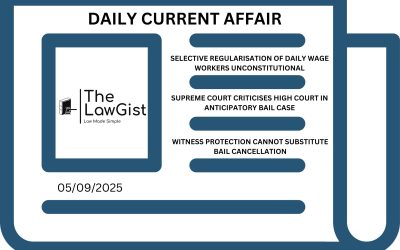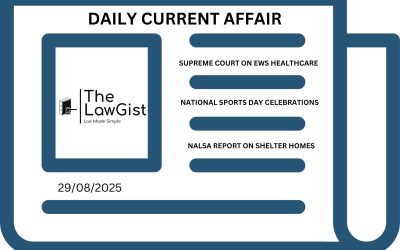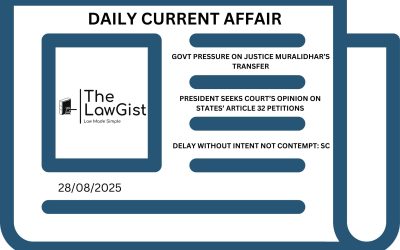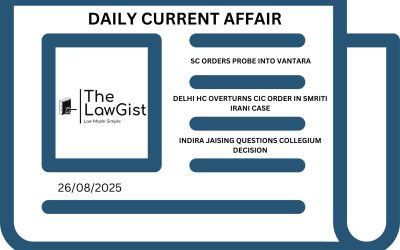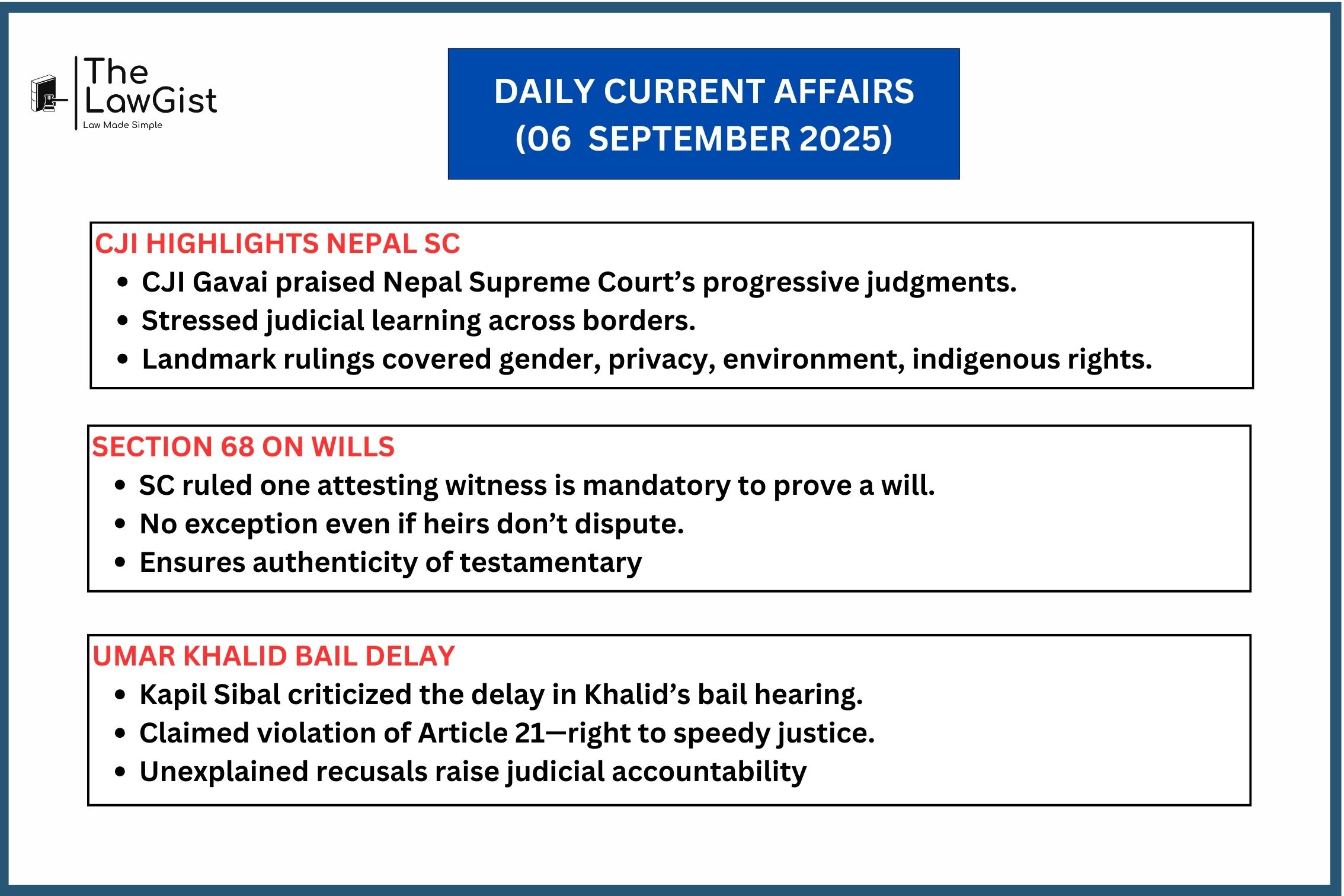
Key Supreme Court highlights: India-Nepal judicial learning, mandatory witness for wills under Section 68, and Article 21 concerns in Umar Khalid’s bail case.
DAILY CURRENT AFFAIRS (06 SEPTEMBER 2025)
CJI HIGHLIGHTS NEPAL SUPREME COURT’S PROGRESSIVE VERDICTS
Overview: Highlighted cases by CJI: Punyabati Pathak v. Ministry of Foreign Affairs (2005); Sapana Pradhan Malla v. Office of the Prime Minister (2007); Shrestha v. Office of Prime Minister (2018); Lawyers’ Association for Human Rights of Nepalese Indigenous Peoples v. Office of Prime Minister (2024)
During the Nepal–India Judicial Dialogue 2025, Chief Justice of India B.R. Gavai appreciated the Nepal Supreme Court for transformative rulings on gender rights, privacy, environment, and indigenous peoples’ protection. He stressed that comparative judicial learning allows courts across countries to strengthen democratic values and constitutional governance.
Legal Provisions
- Gender Equality: Constitutional guarantee against discrimination (Punyabati Pathak)
- Right to Privacy: Judicial recognition as part of dignity (Sapana Pradhan Malla)
- Environment & Fundamental Rights: Linking ecological balance with human rights (Shrestha)
- Indigenous Rights: Domestic law aligned with ILO 169 & UNDRIP (Lawyers’ Association case)
Source: News AIR
WILL PROOF REQUIRES EXAMINATION OF AN ATTESTING WITNESS UNDER SECTION 68
Case Name: Ramesh Chand (D) through LRs. vs. Suresh Chand & Anr.
The Supreme Court reaffirmed that a will cannot be proved unless at least one attesting witness is examined under Section 68 of the Evidence Act, even if heirs raise no objection. The Court rejected the High Court’s relaxation of this mandate, underscoring that strict adherence ensures authenticity of testamentary documents.
Legal Provisions
- Section 68, Evidence Act 1872: Requires one attesting witness to testify for proving a will.
- Testamentary Authenticity: Prevents misuse or fraud in succession disputes.
- No Waiver: Absence of heir disputes does not dilute statutory requirement.
- Judicial Consistency: Ensures uniform application of evidentiary rules.
Source: Supreme Court of India
DELAY IN UMAR KHALID BAIL PLEA RAISES ARTICLE 21 CONCERNS
Overview: Umar Khalid – Bail Plea in Delhi Riots Conspiracy Case
Senior Advocate Kapil Sibal expressed concern over prolonged delays and unexplained recusals in hearing Umar Khalid’s bail application. He argued that such pendency undermines Article 21 of the Constitution, which guarantees the right to life and liberty, and signaled an appeal before the Supreme Court against denial of bail.
Legal Provisions
- Article 21, Constitution of India: Mandates speedy justice as part of liberty.
- Bail Jurisprudence: Courts must prioritize bail matters (Union of India v. KA Najeeb).
- Judicial Accountability: Transparency in recusals protects public trust.
- Principle of Fair Trial: Delays in criminal proceedings violate constitutional safeguards.
Source: PTI
Also Read: DAILY CURRENT AFFAIRS (05 SEPTEMBER 2025)


